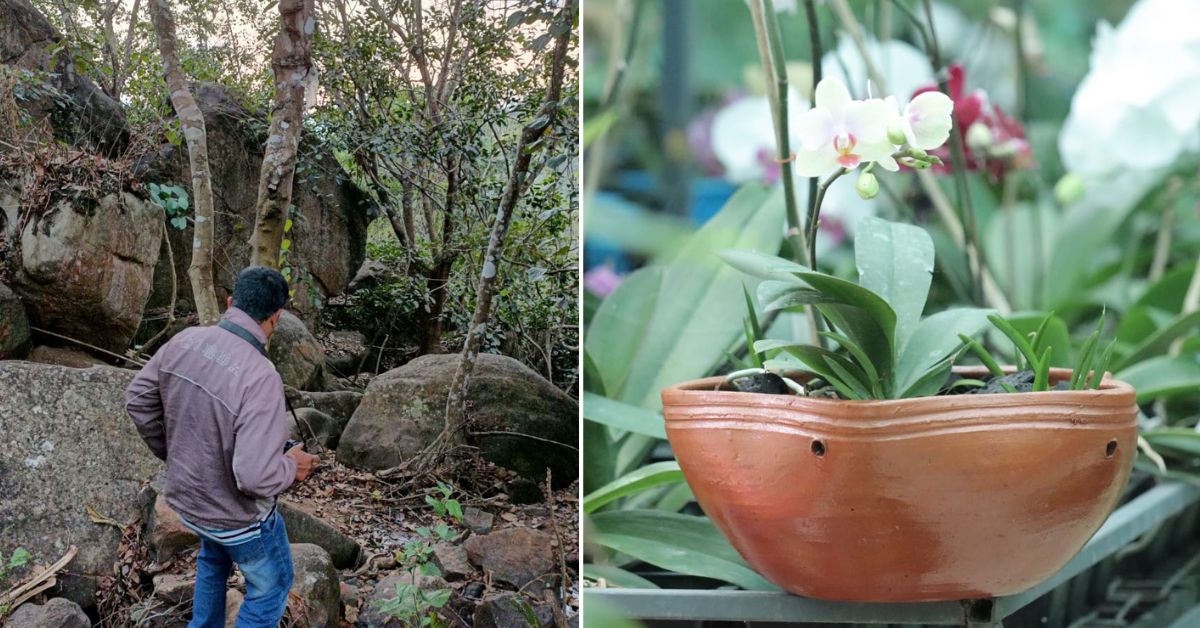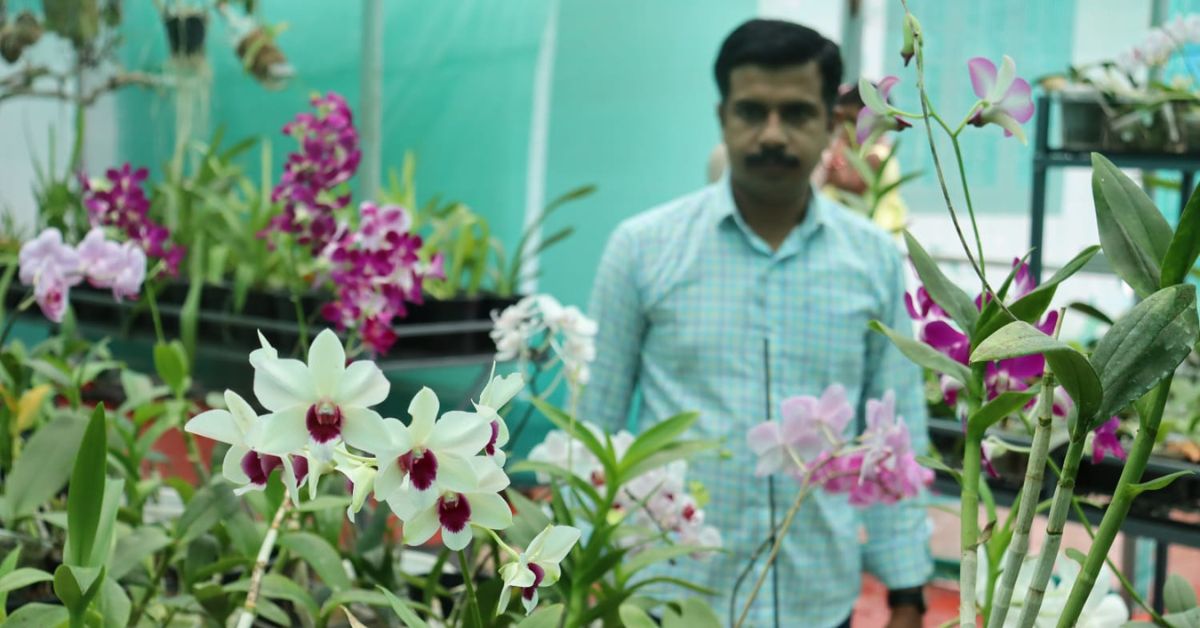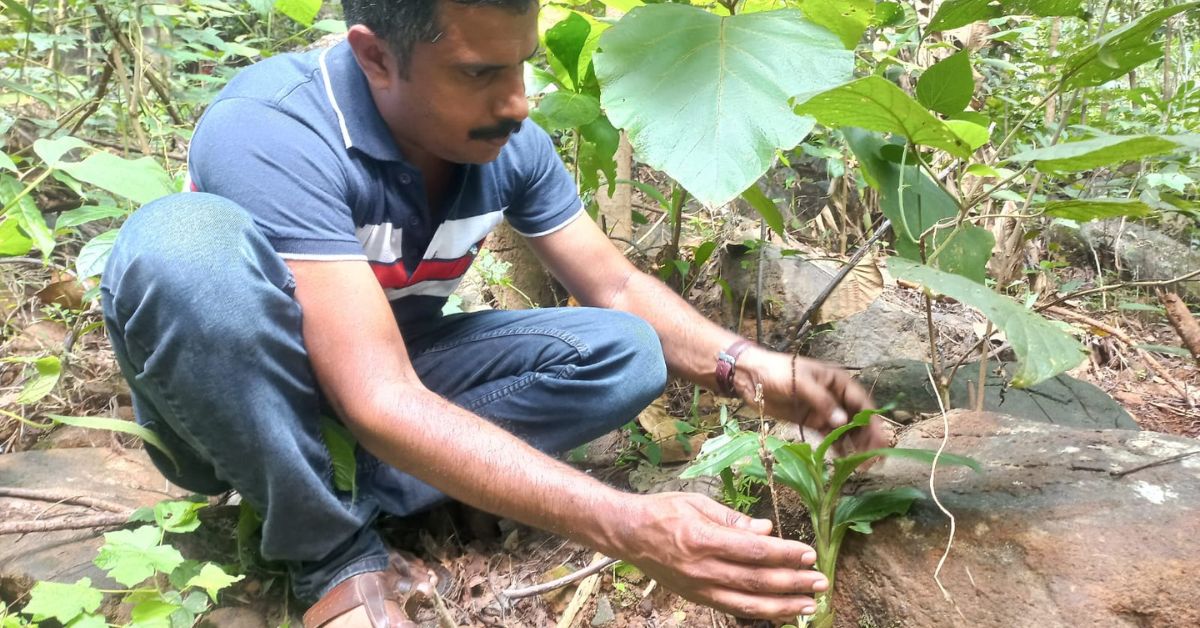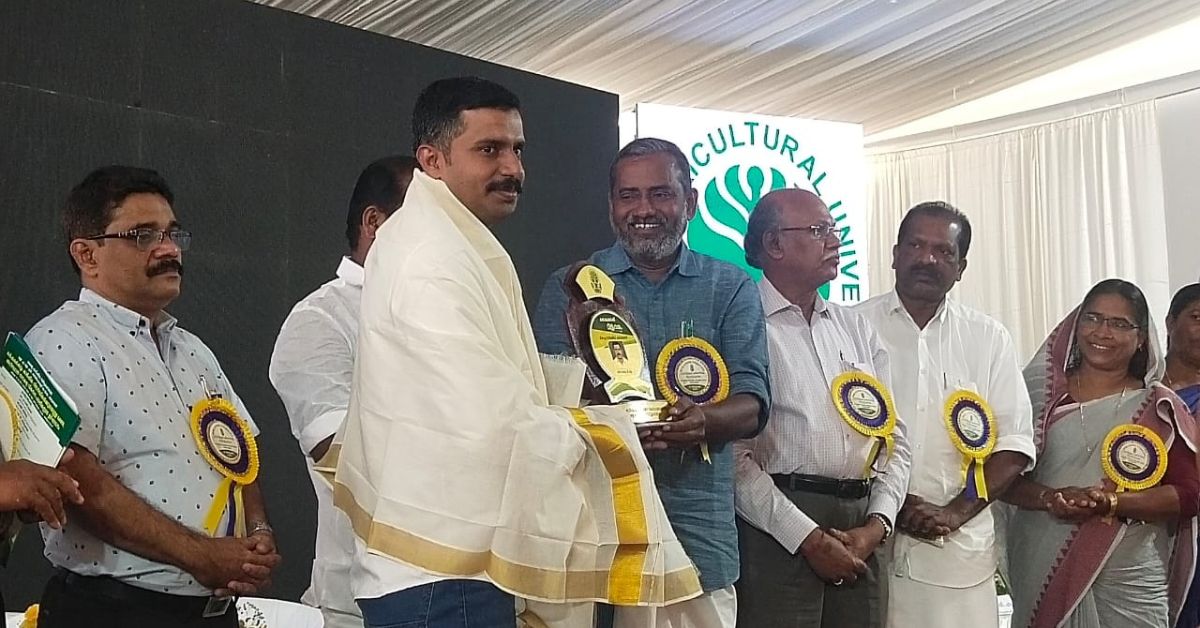Every weekend, Kerala’s V U Sabu sets out for the lush green Western Ghats, not with the purpose of vacationing but with a mission to conserve the rare wild orchids spread on the range of mountains along the western coast of the country.
An epitome of exquisite beauty and pleasant aroma, wild orchids are known for their botanical speciality (symbiosis), and medicinal and horticultural significance.
The hilly regions across India are home to a diverse variety of orchids that bloom throughout the year. The Western Ghats is a major gene pool for nearly extinct indigenous wild orchids. But over the past few decades, wild orchids have been facing the danger of depletion.
A 2017 report by the Kerala Forest Research Institute points out that these exotic ornamental plants are under the threat of extinction mainly due to habitat alteration, destruction derived from a change in land use, and large-scale extraction of wild plants for trade.
These changes are caused by human interventions — such as agricultural development, industrial development, road construction, mining, tourism and recreation, and timber extraction.

Moreover, about 36 plant species have been red-listed by the International Union for Conservation of Nature (IUCN). Among these, paphiopedilum druryi (critically endangered) and vanda spathulata (vulnerable) are the two threatened species found in Kerala.
Wayanad resident Sabu has devoted himself to conserving wild orchids. So far, the innovative farmer has conserved 60 varieties of wild orchids — such as vanda testacea, cymbidium aloifolium, luisia zeylanica, eria mysorensis, and foxtail orchid from the Western Ghats.
Why conserve orchids?
In 2016, after completing higher studies in healthcare management, Sabu started working with the Dr Moopens Medical College in Wayanad. Irrespective of the profession, he was motivated to follow his passion for the environment.
It was this passion that took him to nurseries several times. When he came across a few orchids at the nursery, he was in awe of the breathtaking beauty of the flowers. “These are very tiny but attractive flowers available in a diverse range of colours and forms,” the 38-year-old tells The Better India.
Coming home, he started researching about orchids and immersed himself in the study of plant species and their delicate ecosystems.
“That is when I found out that the nearby Western Ghats are home to several rare species of wild orchids. They are effective in controlling the climate and play a vital role in maintaining biodiversity, as they often serve as indicators of ecosystem health. These flowers do not thrive in polluted air,” he says.

“Orchids provide habitat and food for a wide range of species, including pollinators like bees and butterflies. But people are hardly concerned about these plants. Many of its species are disappearing from our land. I wanted to conserve these plants so that they protect the environment and biodiversity. The environment is where all life originates and where everything we need for our survival comes from. We need to start respecting and protecting it,” he adds.
So, for more than the past six years, Sabu has taken conservation action as his hobby. Whenever he gets a chance, he sets out in the forest to collect and conserve wild orchids.
Giving back to Mother Earth
Without any experience in agricultural studies, Sabu started his own initiative. He follows the approach of collection, conservation, and augmentation.
Firstly, he collects wild orchids that grow on tree trunks, rocks, and rock fissures. After understanding the environment required to grow them, he nurtures and propagates them at his home. Thereafter, he replants the plant species to its native environment — near the mother plant — without harming the environment.
Not only this, Sabu observes the growth of the plant and documents it in his diary.

But protecting these wild orchids, Sabu says, is an uphill task. “It is very difficult to collect and replant these orchids in forests as these need to be planted near streams, rocky areas, and tree trunks. I have to ensure that these tiny plants do not get washed away during disasters or heavy rain,” he says.
To address this problem, Sabu plants these delicate blooms on the trunk of coffee plantations. “I grow orchids on coffee trunks as these plants do not grow on trees with thick foliage. It is easier to fix the plant roots of orchids on the soft trunk of coffee plants. Coffee plantations allow a good amount of diffused sunlight to stream in on them every day. Here, orchids are protected by direct harsh sunlight and heavy rain,” he adds.
As of now, he has replanted around 200 saplings of wild orchids in the Western Ghats and has cultivated around 120 native varieties of wild orchids at his home, of these 60 are from Western Ghats. He has also planted 4,000 plants of commercial orchids at home in three poly houses spread across 750 square metres.
Sabu also claims to have discovered a hybrid orchid species, which he named ‘Benita’ after his daughter.

His home in Wayanad has also become a paradise for more than 5,000 PhD students and botanists from 20 institutions who regularly visit his home to study wild orchids. “Usually, these students find wild orchids in their textbooks. I want them to practically see these rare varieties,” he says.
For his work, Sabu was selected as the third-best farmer by the Indian Council of Agricultural Research (ICAR) in 2021 and was honoured with the Udhyana Shrestha Award from the Wayanad Agriculture Department in 2022. This year, he received the Best Farmer Award from the Horticulture Department of Wayanad.
Sabu says, “I do not have any selfish motive behind this initiative. Unlike others, I do not sell wild orchids to make money. I do it as part of conservation efforts. Conserving these wild orchids is paramount as future generations should also be able to cherish and enjoy the legacy in the same way I do.”
Edited by Pranita Bhat. All photos: V U Sabu.
No comments:
Post a Comment